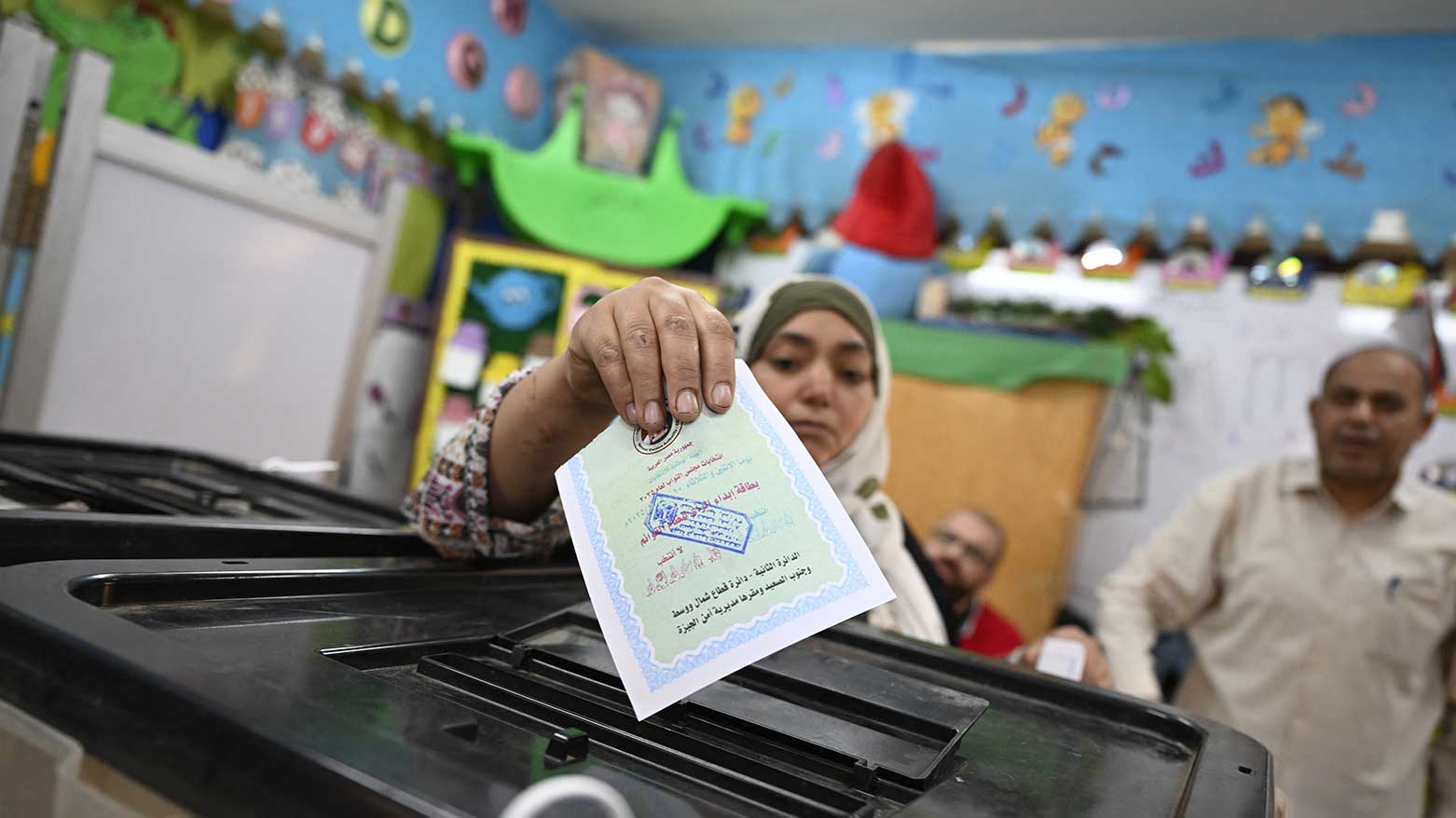From Cairo to Baghdad: Two Consecutive Elections, Two Very Different Political Landscapes
As Egypt begins weeks-long voting expected to consolidate President Sisi’s power, Iraq prepares for its parliamentary elections on Tuesday, marking two pivotal yet contrasting moments in Middle Eastern politics.

ERBIL (Kurdistan24) — Egyptians began voting on Monday in parliamentary elections widely expected to reinforce President Abdel Fattah al-Sisi’s dominance over the country’s political landscape, while neighboring Iraq is set to hold its own parliamentary elections on Tuesday, in a markedly more competitive atmosphere.
Polling stations opened across Egypt at 9:00 a.m. local time (0700 GMT), kicking off a weeks-long process to fill 568 of the 596 seats in the lower house of parliament. The remaining 28 members will be appointed directly by President Sisi.
Egyptians abroad cast their votes over the weekend, while domestic voting will continue in several phases across the country until late November, with final results expected by December 25.
Half of the seats are being contested through closed party lists and the other half by individual candidates, with a quarter reserved for women.
The elections come just two months after Egypt’s senate vote, which saw a record-low turnout of only 17 percent and was swept by the pro-government National List for Egypt coalition. That same alliance, led by the Mostaqbal Watan (Nation’s Future) party, is widely expected to dominate the current parliamentary polls.
Political analysts say the vote is crucial for Sisi as it will likely produce a parliament fully aligned with his administration ahead of the end of his third and final term in 2030. Under constitutional amendments passed in 2019, his term was extended from four to six years, and the previous term was retroactively counted as his first—effectively allowing him to rule until 2030.
“Sisi needs a parliament he can fully control,” said Timothy Kaldas, a policy expert at the Tahrir Institute for Middle East Policy. “If he wants to stay in power beyond 2030, it’s this next parliament that would have to initiate any constitutional changes to make that possible,” he told AFP.
Despite government efforts to project an image of stability and inclusiveness through a 2022 “national dialogue,” rights groups continue to accuse Sisi’s administration of stifling dissent and detaining tens of thousands of political opponents.
Critics argue that the elections, dominated by pro-government figures and business elites, offer little room for genuine political competition.
A Region Watching Two Very Different Votes
One day after Egyptians cast their ballots, Iraq will hold its own parliamentary elections, a process that—despite its challenges—reflects a more pluralistic and contested political environment.
Unlike Egypt’s heavily managed system, Iraq’s elections will feature numerous competing parties representing diverse ethnic, sectarian, and regional constituencies. The Iraqi vote will determine the makeup of the Council of Representatives, which plays a direct role in selecting the country’s prime minister and shaping national policy.
Observers say the back-to-back elections in Cairo and Baghdad highlight two contrasting political realities in the Middle East: Egypt’s top-down model emphasizing control and continuity, and Iraq’s relatively more decentralized, albeit often turbulent, democratic framework, shadowed by foreign influence.
While turnout in Egypt remains low amid widespread voter apathy and limited opposition, Iraq’s electoral contests are characterized by intense campaigning and coalition-building, even as the country continues to face challenges of governance, corruption, and regional influence.
As Egyptians vote for a parliament expected to secure Sisi’s legacy and Iraqis prepare to head to the polls in a bid to redefine theirs, both nations—each in its own way—underscore the ongoing struggle across the Middle East to balance stability with genuine representation.